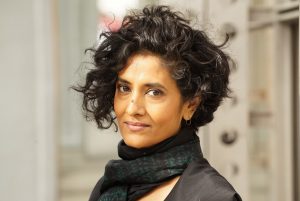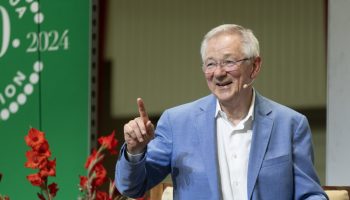NICK DANLAG – STAFF WRITER

Just as Somini Sengupta started to read, her grandfather started to lose his eyesight. In a 2018 lecture at Dartmouth College, she talked about reading newspapers to him. Sengupta mostly didn’t understand what the articles were talking about, but she understood the words meant a lot to her grandfather.
Sengupta knew this because, at the end of each day, her grandfather and his friends would talk on his front lawn, sometimes arguing with each other and sometimes laughing.
“I have no idea what they were actually arguing about, but I knew that the world beyond my grandfather’s stoop was important; that there were people out there making important decisions … that were affecting our lives,” Sengupta, international climate correspondent for The New York Times, told her Dartmouth audience.
A recipient of the George Polk Award for foreign reporting and many other accolades, Sengupta tells the stories of those most vulnerable to climate change.
At 10:30 a.m. Monday, June 27 in the Amphitheater, Sengupta will kick off the 2021 Chautauqua Lecture Series and Week One’s theme of “China and the World: Collaboration, Competition, Confrontation?” She will discuss the converging interests on climate change of China and the United States.
“We open our season,” said Matt Ewalt, vice president and Emily and Richard Smucker Chair for Education, “and our week on China, looking at how the world’s two biggest superpowers can work together — and whether they will work together — to solve the biggest issue of our time.
“As the international climate correspondent for The New York Times, Somini Sengupta has been on the front lines of this work, from pledges made to the U.N. General Assembly to the devastating impact of climate on communities throughout the world.”
After getting her undergraduate degree in English and development studies at the University of California, Berkeley, Sengupta worked at The Los Angeles Times.
“As journalists, we are instructed with the stories of others,” Sengupta said in 2020 Marie Colvin Lecture at Stony Brook University School of Communication and Journalism. “That’s an incredible gift — and that’s all the more so when it’s the stories of people who are hurt, who are exploited, who are cheated by people in power.”
Since then, she has reported around the world. She has worked as The New York Times U.N. Correspondent, but she now focuses her reporting on international climate change.
In 2016, Sengupta published The End of Karma: Hope and Fury Among India’s Young, a nonfiction book about those affected by the unprecedented youth bulge, or population boom, in India. The people Sengupta writes about are driven by hope, yet held back by the state and society.
Journalism “has never been more important to defending the tenets of democracy,” Sengupta said at Stony Brook. “Not with a quick take,” she said, “not with an angry screed on Twitter, but with stories that tell people what happened, who did it, who gained, who lost, who did the damage, who got hurt.”




